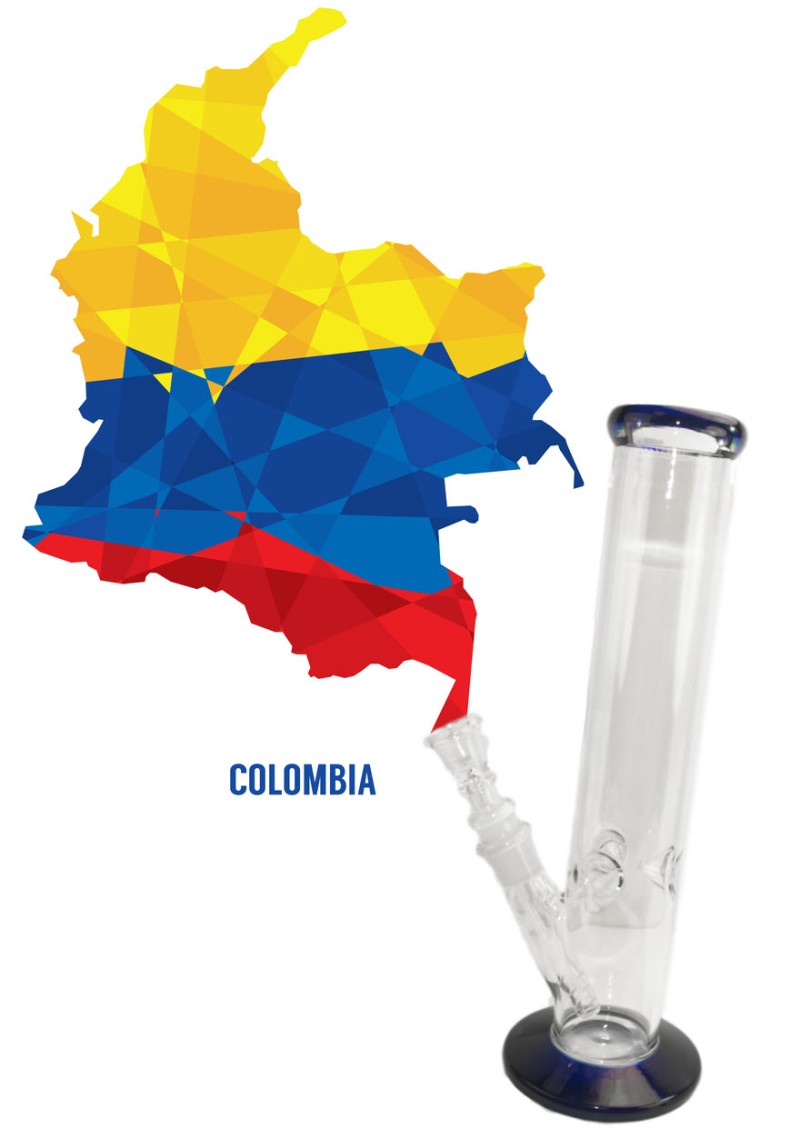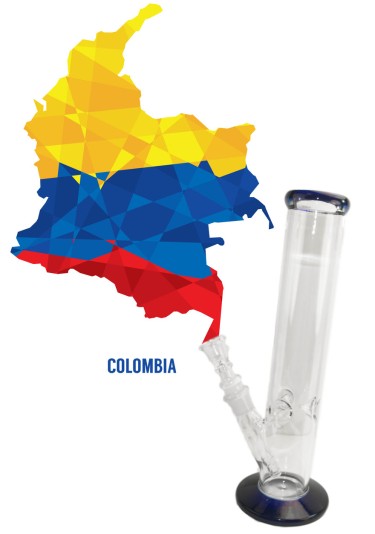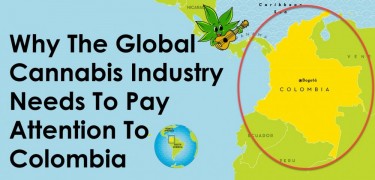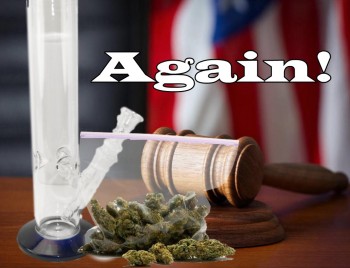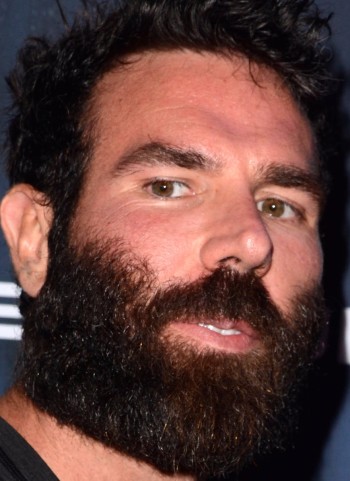Colombia Approves Marijuana Legalization Bill
It seems that Colombia will be the following country to legalize cannabis. Last Tuesday, lawmakers unanimously voted to pass a bill that would have made cannabis legal and regulated nationally. The proposal represents the initial phase of legalization. The proposed decision would lay the foundation for legally selling cannabis, guaranteeing that tax revenue is shared among communities and may be used to fund things like education and public health. On a 31-2 vote, the Chamber of Representatives First Committee approved the legislation introduced by Rep. Carlos Ardila.
The proposal provides an overview of how legalizing marijuana will operate and affect the nation. The bill explains several things in Spanish, including that the drug's legal use is intended for adults. It also promotes a narrative that echoes what Colombia's president has said ever since he was elected: that the criminal aspect of cannabis should be eliminated. At the same time, harm reduction and public health should take precedence.
Gustavo Petro, the country's first leftist president, and Francia Márquez, the first Black woman to serve as vice president, are working to change the international legislation on drugs.
At least two cannabis legalization bills have recently made progress in the legislature, including this one. Another motion from Juan Carlos Losada, a liberal deputy, was approved by the First Commission last month. He also recently requested support for his bill in a letter to President Petro. However, e Even though Petro has publicly condemned the global criminalization approach to drugs, he has not yet approved any of the individual cannabis reform proposals.
Petro's Opinion On War On Drugs and Cannabis Policy
Petro has urged Colombia to abandon the "ineffective" drug policies created by the United States and forge its course instead. Petro is a strong supporter of marijuana legalization. Petro affirmed that he thinks it's ridiculous to keep marijuana a secret.
With millions of lives at risk under the existing system, Petro warned UN members last month that "democracy will perish" if world powers don't band together to remove prohibition and adopt an alternative strategy. In another interview conducted last month, the president claimed that if the existing quo of criminalization is maintained, the United States and other nations will facilitate a genocide of preventable overdose fatalities.
Recently, Petro also discussed Colombia's potential for legalizing marijuana to lessen the black market's influence. He also suggested that those currently imprisoned for cannabis use be released to implement the policy reform. He discussed the potential economic impact of a legal cannabis economy. One in which small villages in regions like the Andes, Miranda, and Corinto may profit from the legal cultivation of marijuana, possibly without the need for a license. The president also hinted that he would be open to looking into the possibility of exporting marijuana to nations where it is legal.
Relationship Between US and Colombia
The chairman of the House Rules Committee, US Rep. Jim McGovern (D-MA), applauded Petro's official swearing-in and expressed excitement about collaborating to rethink regulation and a lot more.
On the other hand, President Joe Biden appears determined to continue the war on drugs in Colombia with the help of American forces. In August, he issued a document to the defense secretary that permits prohibition of aircraft considered to be predominantly involved in drug trafficking in Colombia's airspace."
He stated that it is necessary due to the extraordinary risk of illegal drug trafficking to Colombia's national security. Colombia has proper approaches to guide against the loss of innocent lives in connection with such operations in the area, including practical methods to detect and alert an aircraft before an attack is launched against the aircraft.
However, in a joint presentation with Petro on Monday, Antony Blinken, the Secretary of State, stated that the US typically supports his holistic approach to narcotics. Colombia's president, for his part, said that countries must "approach the war on drugs differently.
Petro, a former guerrilla soldier for Colombia's M-19 group, has witnessed the bloody war between narcoparamilitary organizations, guerrilla fighters, and drug cartels which has been made worse by the government's harsh drug enforcement policies.
Despite Colombia's drug supply reduction measures, such as the destruction of laboratories, and eradication of coca bush, the United Nations Office of Drug Control Policy (ONDCP) claims that Colombia is still the world's largest exporter of cocaine.
Previous attempts at Substance regulation
Recognizing the failure of the government's decades-long efforts to combat the drug and related practices, Colombian lawmakers sponsored a bill in 2020 that could have regulated coca. This herb is treated to manufacture cocaine. Although a committee approved that bill, the conservative legislature finally decided to dismiss it.
Advocates are hopeful that their idea will get traction under a Petro administration. Although he didn't express a firm opinion on the legislation during the campaign, the president advocated for the legalization of marijuana and marketed it as a safer alternative to cocaine.
Juan Manuel Santos, a former president of Colombia, has also criticized the drug war and supported the change. Before leaving office, he condemned President Nixon of the United States and the United Nations for their roles in establishing a standard for the war on drugs that, at best, have been unsuccessful and destructive.
He added it is time we spoke about appropriate government regulation, look for methods to cut off the drug mafias' air supply, and handle drug use's problems with increased resources for care, prevention, and harm reduction.
According to Santos, a member of the Global Commission on Drug Policy, this reflection must have a worldwide reach to be highly effective. It must also include a wide range of stakeholders, including academics, civil society, and governments. It needs to involve professionals from various fields, such as public health, economics, and education, in addition to law enforcement and the judiciary.
Conclusion
Hopefully, the proposal will be passed into law, setting rules and a tax framework for the sale of legal marijuana. The money raised will be shared among the local governments to promote education, public health, and agricultural activities. Thereby promoting better living in Colombia.

